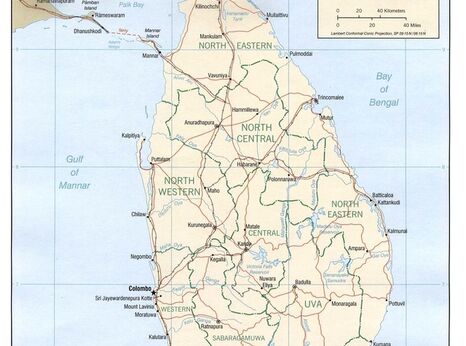Sri Lanka: Lawyer detained without trial for over a year

Hejaaz is a lawyer at the Supreme Court of Sri Lanka and has been a vocal critic of government on human rights issues, particularly the rights of minorities in the country. Hejaaz Hizbullah was arrested on 14 April 2020 by members of Criminal Investigation Department (CID) of the Sri Lankan Police. After initially not being informed of the reason for his arrest, the authorities later accused him in the media of aiding and abetting the individuals involved in 21 April bombings in Sri Lanka—an accusation that has since been withdrawn. The authorities have now charged him with speech related offenses under the notorious Prevention of Terrorism Act (PTA). The PTA provides authorities with sweeping powers to arbitrarily detain individuals for up to 18 months without charge, being brought before a judge, or trial, among others. Hejaaz has been denied regular, unrestricted access to his lawyers and family throughout his detention.
The arrest of Hejaaz Hizbullah comes amidst the background of increased marginalization, discrimination and targeting of Sri Lanka’s Muslim community. Amnesty International has recorded recent incidents of cabinet proposals, decisions, and government regulations that from the outset discriminate against the country’s Muslim minority community which make up approximately 9% of Sri Lanka’s population.
In 2017, then UN Special rapporteur on the promotion and protection of human rights and fundamental freedoms while countering terrorism, Ben Emmerson, highlighted the history of Sri Lankan authorities of prosecuting minorities on charges of terrorism, noting that “the Prevention of Terrorism Act had been used to commit some of the worst human rights violations, including widespread torture and arbitrary detention, in the run-up to and during the conflict, particularly to target minorities and suppress dissent”. The report also highlighted the history of Sri Lankan authorities persecuting individuals under terrorism related law with “various real or perceived links or associations with armed groups, and detaining for years without charge or trial, without any judicial review of their detention, and with almost no possibility of release”.
The Human Rights Commission of Sri Lanka (HRCSL), in its 2016 submission to the UN Committee against Torture, highlighted the use of torture within Sri Lankan context with “torture being routinely used in all parts of the country regardless of the nature of the suspected offence for which the person is arrested.” A more recent prison study done by the HRCSL, published in December 2020, found that PTA detainees faced a continuum of violence. The study found that “violence in police custody was found to be an inherent element of the investigation process, whereby torture is inflicted to extract information, confessions and evidence from detainees.
Amnesty International recently named Hejaaz Hizbullah a Prisoner of Conscience. Amnesty International’s Prisoner of Conscience determination is based on the information available to Amnesty International regarding the circumstances leading to the person’s detention. In naming a person as a Prisoner of Conscience, Amnesty International is affirming that this person must be immediately and unconditionally released but is not endorsing past or present views or conduct by them.